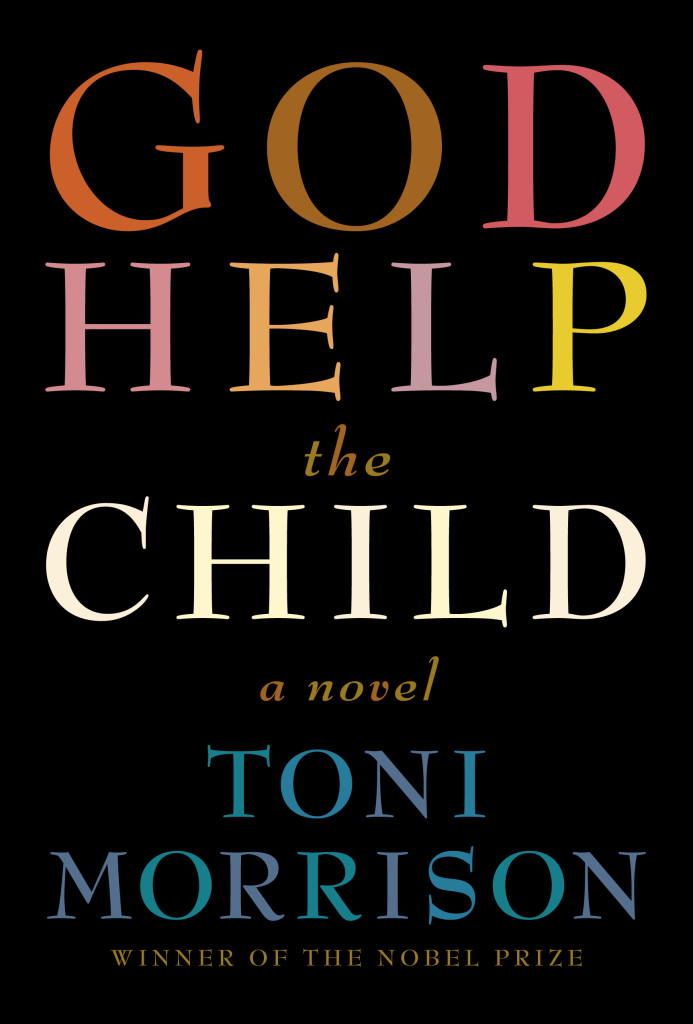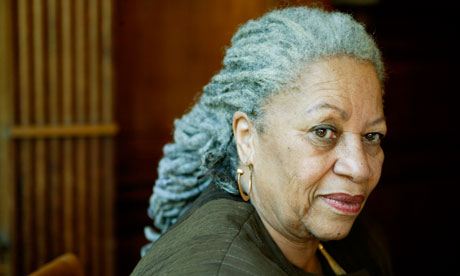 Since it will be coming out in paperback later this month, I feel it’s appropriate to bring back into the conversation my favorite fictional release from 2015, Toni Morrison’s God Help the Child. After Morrison announced the imminent publication of her latest novel just over a year ago, it quickly became one of the most anticipated books of 2015; however, it was published in late April to somewhat mixed reviews.
Since it will be coming out in paperback later this month, I feel it’s appropriate to bring back into the conversation my favorite fictional release from 2015, Toni Morrison’s God Help the Child. After Morrison announced the imminent publication of her latest novel just over a year ago, it quickly became one of the most anticipated books of 2015; however, it was published in late April to somewhat mixed reviews.
God Help the Child tells the story of Lula Ann Bridewell, a blue-black girl born to light-skinned parents who view the darkness of her skin as an insult to their respectable family. Unable to feel anything but shame for his only child, Lula Ann’s father soon deserts the family, leaving her mother Sweetness to care for the unwanted girl. Sweetness assumes the responsibility of preparing Lula Ann for a harsh world that will undoubtedly punish her for having dark skin by withholding affection for her daughter entirely. The only departure from this loveless childhood comes after Lula Ann testifies against an elementary school teacher for sexual abuse. The thumbs up she gets from fathers and hugs she gets from mothers do not compare to the tender grasp of Sweetness’ hand as they walk down the street away from the courtroom.
Fast forward some fifteen years, and Lula Ann has become Bride, a strikingly beautiful woman behind a successful cosmetics line based in Los Angeles. Dressing always and only in white, Bride has changed her name and transformed her dark skin into her most valuable asset. Although she turns the head of every man and woman she passes, black and white, she has recently been abruptly abandoned by her enigmatic boyfriend Booker, an event that she not-so-convincingly attempts to downplay. Hoping to restore some of her self-worth that disappeared along with Booker, Bride goes in search of Sophia Huxley, the very teacher whom she helped imprison with her testimony and who was released on parole earlier that month.
These events and those that follow are told through chapters of rotating narrators: Sweetness, Bride, Brooklyn (Bride’s best friend and coworker), and Booker. Though Sweetness’ and Brooklyn’s chapters are shorter and mostly revolve around Bride, Booker’s chapter is long and details his own complicated childhood. Here we learn that Booker’s older brother Adam was abducted and murdered when he was young, an event that Booker, unlike his family, can never accept and move past. Consequently, Booker isolates himself emotionally and quietly nurtures his anger. Booker’s past, along with Bride’s, highlight the underlying theme of the novel, that “what you do to children matters. And they might never forget.”
In the wise words of my coworker Lisa, God Help the Child doesn’t quite pack the punch of some of Morrison’s most successful novels, but frankly, it doesn’t have to be her best work for me to call it my favorite book of last year. Stylistically, Morrison is a master, and her prose is as lyrical as ever. In one of my favorite paragraphs of the novel, Booker recalls a memory of Adam skateboarding, the last time he saw his brother before his disappearance.
“It was early September and nothing anywhere had begun to die. Maple leaves behaved as though their green was immortal. Ash trees were still climbing toward a cloudless sky. The sun began turning aggressively alive in the process of setting. Down the sidewalk between hedges and towering trees Adam floated, a spot of gold moving down a shadowy tunnel toward the mouth of a living sun.”

Morrison is without question one of the most important authors in the world today, and, at age 84, she doesn’t seem to have lost her touch. We are lucky to still have her around, publishing a novel every three to five years. It is a truly special experience to read a literary giant during her own lifetime.
God Help the Child will be out in paperback on January 26. Also, if you enjoy being read to, check out the audiobook read by the author in her signature mesmerizing voice.


Comments are closed.